Global Facts
Why books for international Christian leaders and theological schools?
Here are some quick facts:
- About 60%-70% of Christians live outside the US – this is where the church is growing.
- Probably 80%-85% of pastors outside the US have no formal theological training.
- In the US, there is one trained pastor per 250 people; outside the US, there is one trained pastor per 450,000 people.
- Missions experts confirm that the #1 request from Christian leaders around the world is for help in training their pastors.
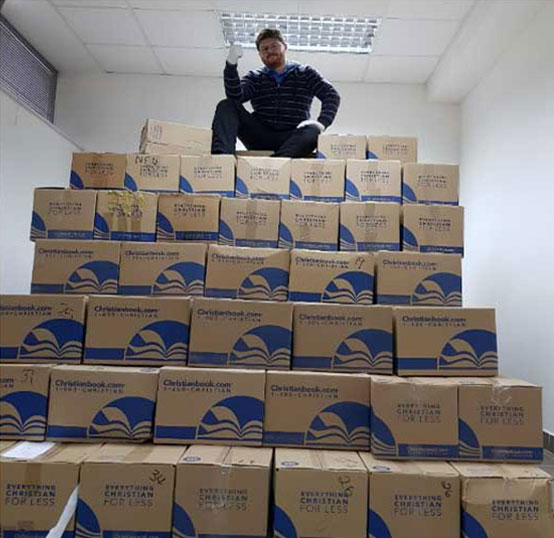
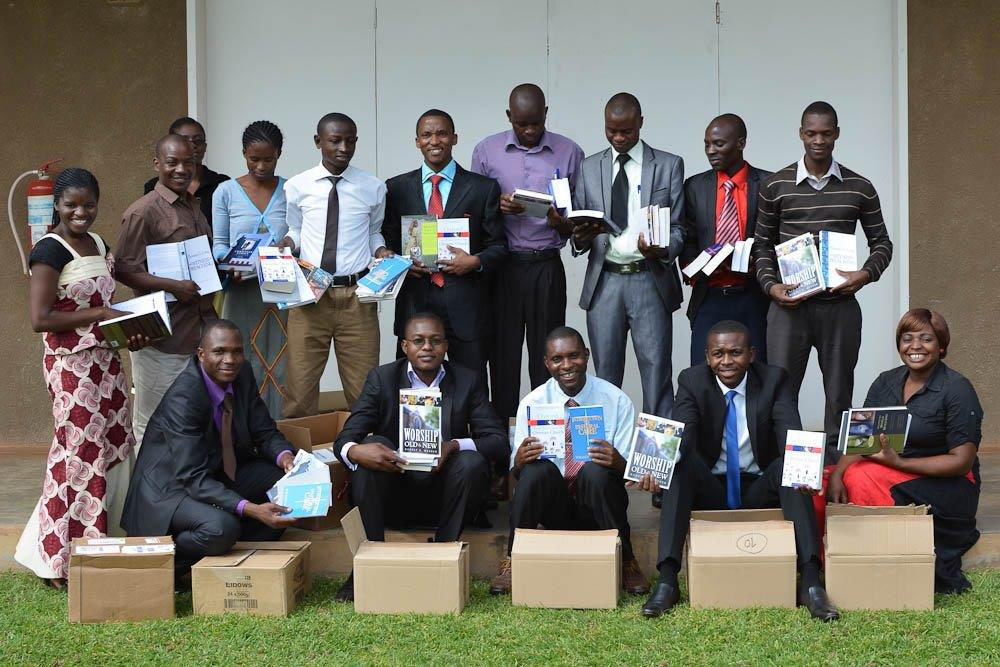
We are not the ones who provide training. But training requires resources – and that’s where we can help.
Training of pastors and Christian leaders generally falls under two broad categories – formal and informal.
Formal training
We work with theological schools around the world which provide formal training at all levels from certificate or diploma, all the way up to doctoral programs. We help provide library books and textbooks which are critical to the training process. In addition to the obvious help the books provide to the students and faculty, library development is also a requirement for accreditation for the schools. Schools often struggle in this area because needed resources like quality theological books are often scarce and/or expensive in their countries. We have helped provide more than 269,000 library books and textbooks to more than 100 partner schools, and the list continues to grow.
Non-formal Training
For every one pastor outside the U.S. who receives formal training in a Bible college or seminary, there are probably dozens more that will never have the opportunity. Yet they are still faithfully pastoring, and still in desperate need of training. We have helped provide more than 381,000 books and study Bibles to a number of organizations which provide informal training to these pastors through seminars, book distribution and lending libraries.
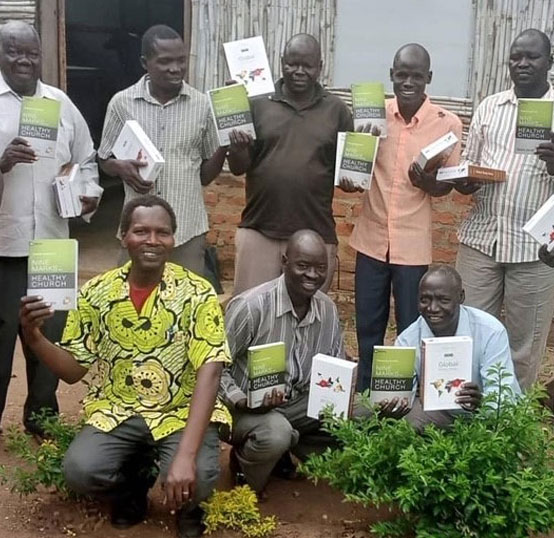
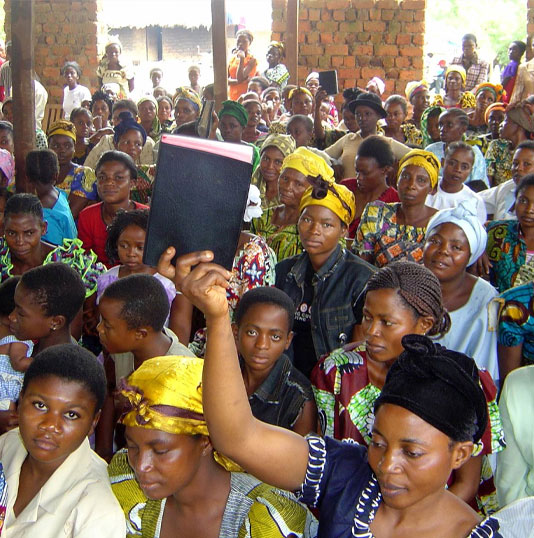
Why Bibles for those without access to them?
It’s very hard for those of in the U.S. to imagine not having access to Bibles. Estimates are that 85% of U.S. households own a Bible, and the average household owns more than four. Bibles are abundantly available and affordable to just about anyone who wants one.
This is not the reality in many parts of the world. In Africa alone, it’s estimated that 100 – 200 million Christian believers do not own a Bible. We’re not even talking about Bibles for evangelism, which is also a huge need – but rather people who are already believers but don’t own a Bible.
We have verified stories like these:
- A church service with 500 people present and only three of them owned a Bible;
- Some churches where even the pastor doesn’t own a complete Bible;
- Pastors who have been in ministry for decades and have never owned a good study Bible;
- People willing to walk enormous distances in order to get Bibles;
- A quality Bible, if available at all, costing the equivalent of a month’s wage.
Someone explained the dilemma of the people in his country like this: “A Bible costs about $6, which is the price of two chickens. I don’t have $6 to spare. I could sell two chickens to buy a Bible, but I need the chickens to feed my family. What am I to do?”
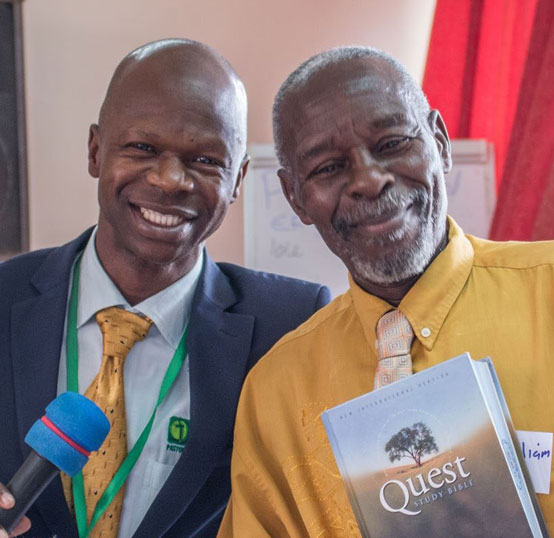
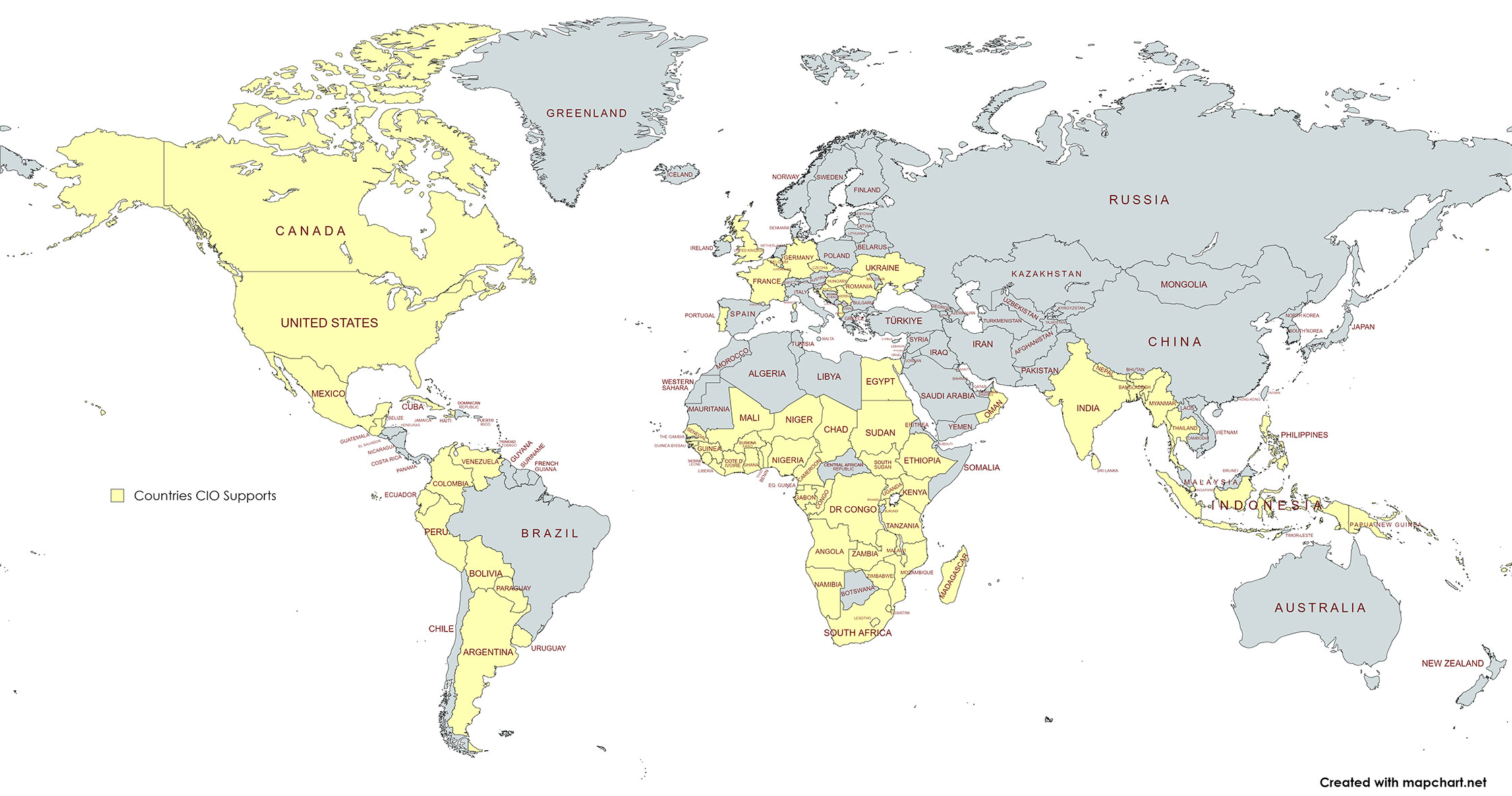
Countries CIO has served:
Albania
Angola
Argentina
Bahamas
Bangladesh
Belgium
Belize
Benin
Bhutan
Bolivia
Burkina Faso
Cameroon
Canada
Cayman Islands
Chad
Columbia
Congo (Brazzaville)
Croatia
Cuba
Czech Republic
Democratic Republic of Congo
Ecuador
Egypt
Eswatini
Ethiopia
Fiji
France
Gabon
Germany
Ghana
Grenada
Guatemala
Guinea
Guinea-Bissau
Haiti
Hungary
India
Indonesia
Ivory Coast/Cote d’Ivoire
Kenya
Lesotho
Liberia
Madagascar
Malawi
Mali
Mexico
Mozambique
Myanmar
Namibia
Nepal
Niger
Nigeria
Oman
Papua New Guinea
Paraguay
Peru
Philippines
Portugal
Romania
Rwanda
Senegal
Serbia
Sierra Leone
Singapore
Solomon Islands
South Africa
South Sudan
Sri Lanka
Sudan
Tanzania
Thailand
Togo
Tonga
Tuvalu
Uganda
Ukraine
United Kingdom
United States
Uruguay
Vanuatu
Venezuela
Zambia
Zimbabwe
